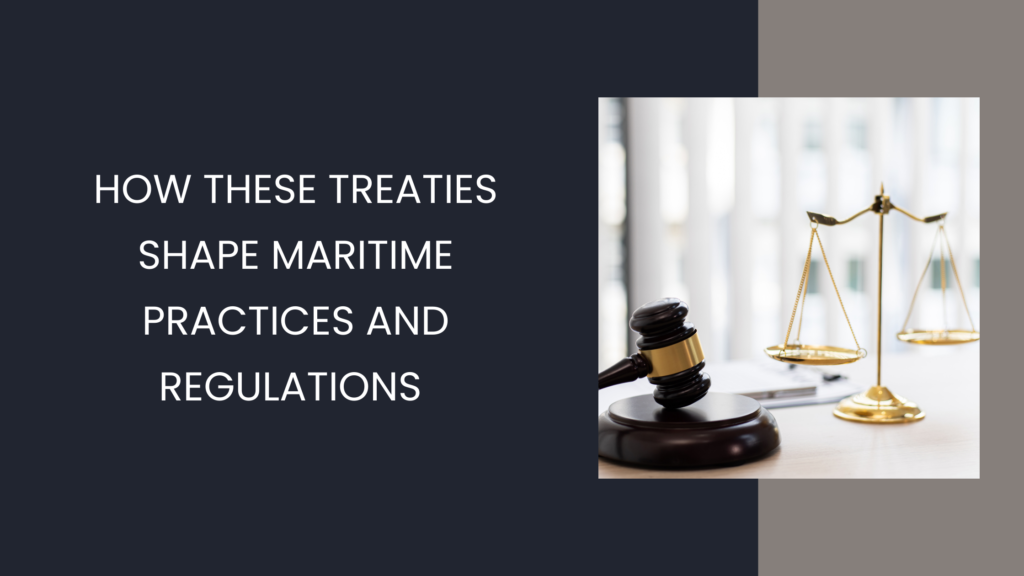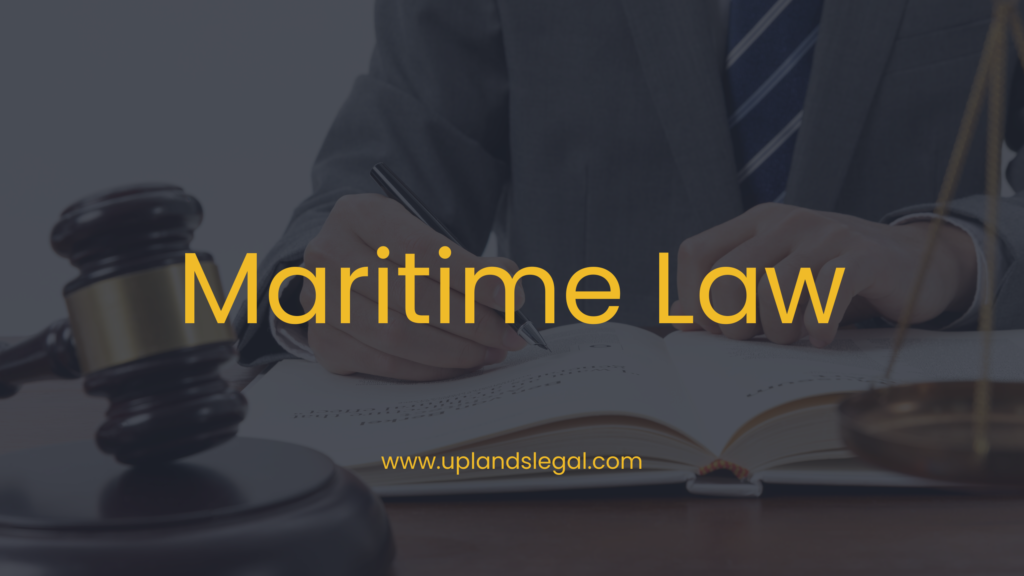In the vast expanse of the world’s oceans and seas, international treaties play a pivotal role in governing maritime practices and regulations. These treaties, crafted through diplomatic negotiations and global consensus, provide the legal framework that ensures safe, efficient, and environmentally responsible maritime operations. Whether you’re a shipping professional, a maritime lawyer, or simply someone interested in global maritime affairs, understanding how these treaties influence maritime practices is crucial. In this blog, we’ll explore how international treaties shape maritime practices and regulations, and why they are essential for international maritime governance.
The Foundation of Maritime Treaties
International maritime treaties are agreements between countries that establish rules and standards for various aspects of maritime affairs. They cover a wide range of issues, from navigation and shipping to environmental protection and maritime security. These treaties are designed to harmonize practices across nations, ensuring that maritime operations are conducted under a unified set of rules and standards.
Major International Maritime Treaties
1. United Nations Convention on the Law of the Sea (UNCLOS)
Often referred to as the “Constitution of the Oceans,” UNCLOS is the most comprehensive and widely adopted maritime treaty. Adopted in 1982, UNCLOS provides a legal framework for the use and conservation of the world’s oceans. It addresses various maritime issues, including:
Territorial Seas and Exclusive Economic Zones (EEZs): UNCLOS defines the limits of territorial seas and EEZs, establishing the rights and responsibilities of coastal states over maritime resources and activities.
Navigation Rights: It guarantees the right of innocent passage through territorial waters and the freedom of navigation in international waters.
Marine Environmental Protection: UNCLOS sets out obligations for the protection and preservation of the marine environment, including measures to combat marine pollution.
2. International Maritime Organization (IMO) Conventions
The International Maritime Organization (IMO) is a specialized agency of the United Nations responsible for regulating shipping. Several IMO conventions play a crucial role in shaping maritime practices, including:
International Convention for the Safety of Life at Sea (SOLAS): SOLAS sets minimum safety standards for ships, covering aspects such as life-saving appliances, fire protection, and safety equipment.
International Convention for the Prevention of Pollution from Ships (MARPOL): MARPOL aims to prevent pollution from ships through regulations on oil, chemicals, sewage, and garbage disposal.
International Ship and Port Facility Security (ISPS) Code: This code enhances security measures for ships and port facilities to prevent acts of terrorism and ensure maritime security.
3. Convention on the International Regulations for Preventing Collisions at Sea (COLREGs)
COLREGs, established in 1972, provides rules for preventing collisions between ships at sea. These regulations cover aspects such as navigation lights, sound signals, and maneuvering rules to ensure safe and orderly maritime traffic.
How Treaties Shape Maritime Practices
1. Standardizing Practices Across Nations
One of the primary roles of international treaties is to standardize maritime practices across countries. By establishing common rules and standards, treaties ensure that ships operating in international waters adhere to uniform regulations, which enhances safety and efficiency. For instance, SOLAS sets global safety standards that all member states must implement, providing consistency in ship safety measures.
2. Facilitating International Trade
Treaties such as UNCLOS and COLREGs facilitate international trade by establishing clear rules for navigation and shipping. UNCLOS ensures that ships can navigate through international waters without undue interference, while COLREGs provides a common set of rules for avoiding collisions, promoting smooth maritime traffic and reducing the risk of accidents.
3. Protecting the Marine Environment
Environmental treaties like MARPOL play a crucial role in protecting the marine environment. By setting regulations on pollution and waste disposal, these treaties help mitigate the impact of shipping activities on oceans and marine life. This contributes to the preservation of marine ecosystems and the sustainable use of ocean resources.
4. Enhancing Maritime Security
The ISPS Code and other security-related treaties address maritime security concerns by establishing protocols for ship and port facility security. These measures help prevent and respond to security threats, such as terrorism and piracy, ensuring safer maritime operations and protecting global shipping routes.
The Role of Enforcement and Compliance
While international treaties provide the framework for maritime practices, their effectiveness depends on enforcement and compliance. Member states are responsible for implementing treaty provisions within their jurisdictions and ensuring that their ships and ports adhere to international standards. The IMO and other international bodies play a role in monitoring compliance, providing technical assistance, and facilitating cooperation among states.
Conclusion
International treaties are instrumental in shaping maritime practices and regulations, providing a structured framework for safe, efficient, and environmentally responsible maritime operations. From ensuring uniform safety standards and facilitating international trade to protecting the marine environment and enhancing maritime security, these treaties play a vital role in global maritime governance. Understanding their impact helps stakeholders navigate the complexities of maritime law and contributes to the effective management of the world’s oceans and seas.



